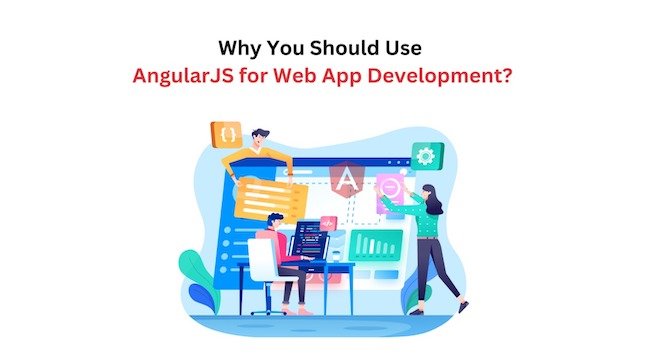The capability of AI in mobile apps transcends the bounds of creativity while unlocking a transformative realm. It is because applications will no longer respond to your commands. Instead, predict your desires and adjust to your emotions.
Yes! And such a world isn’t a long way away!
You can find this tangible reality formed by AI very soon as it has already invested in reshaping the traditional norms of user engagement. Want to know more? Then, read this encompassing guide and delve into the expansive view of AI-infused mobile apps.
What is AI and its integration into mobile apps?
Artificial Intelligence refers to the automated development of computer structures or software programs. It can replace many activities, such as learning, reasoning, and problem-fixing, along with expertise in natural language and visual perception. In fact, they are designed to simulate human cognitive features to surpass human skills.
So, if you combine AI in mobile apps, it will perform advanced functions. It will go past conventional, rule-based programming. Thus increasing user experiences with smart-adaptive and intuitive features, leading to a tendency to study, recognize, and reply based on the user’s behavior & preferences.
Which aspects of AI make mobile apps stand out?
The AI based mobile applications introduce transformative factors that redefine user experiences & functionalities. It involves integrating smart technology, which empowers apps to understand, adapt, & interact. Here are some of its key components:
- User personalization: AI compels applications to conduct deep research on user behavior. Thus analyzing their tendencies and preferences for different moods. As a result, it gives personalized tips and content based on previous interactions and customizes as per their pleasure.
- Predictive analytics: Machine learning algorithms analyze user statistics to expect future movements. They help apps to streamline, learn from past interactions, & present well-timed suggestions through notifications. Its predictive analytics enhance app efficiency and user comfort.
- Natural language processing (NLP): NLP permits apps to understand & respond in human language. Its voice instructions, text inputs, and chat interactions beautify the app’s intuitiveness. Additionally, it improves communication culture and complements accessibility.
- Image and speech recognition: AI allows apps to recognize and interpret visuals & speech. Its image recognition facilitates augmented reality capabilities and visible seek. At the same time, speech popularity enhances hands-free management and voice-based instructions.
- Enhanced security: Another key point is it contributes to strong safety features in mobile apps. Its biometric authentication, facial recognition, and behavioral evaluation enhance user authentication. At the same time, safety functions protect consumer information and privacy.
Incorporating AI into mobile apps leads to more sensible, responsive, and user-centric applications. Moving on, let’s see the benefits of AI in mobile apps.
Can AI-based mobile applications really help you?
Certainly! The integration of AI mobile app development brings forth a large number of benefits. It remodels the user’s engagement with their device and improves the existing average functionality. Here are a few critical advantages to look out for:
- Improved client experience: AI-induced personalization can tailor the application experience to individual choices. Its prescient analytics predicts client wishes, needs, and applicable proposals. Thus connecting users to a more natural and individual connection interface.
- Enhanced efficiency: AI in mobile apps automates redundant obligations and repetitive tasks. Its smart calculations smooth out methods and expand efficiency, permitting users to successfully perform tasks quicker just by the tip of a personal interface.
- Smart forecasts and proposals: AI calculations examine client conduct to make the right forecasts. They give customized hints, improving individual commitment. Its prescient examination expects individual decisions, making the application extra proactive.
- Mindful settings: Another added advantage is AI permits apps to understand user context in actual time. Its location cognizance & activities enhance app functionalities. In contrast, context-aware capabilities contribute to creating more adaptive user experiences.
Integrating AI in mobile apps is still a conquering challenge. But the results are worth enough to elevate a person’s pleasure. Next, let’s focus on some of its tools.
Which are the best tools for merging AI in mobile apps?
If you are aiming to integrate AI and machine learning services. Then, you would surely need several tools and frameworks on board because they help developers construct intelligent & characteristic-rich applications easily. Here are some popularly used tools:
- TensorFlow Lite: TensorFlow Lite is a lightweight model that belongs to the popular TensorFlow framework designed for mobile devices. It enables on-device machine learning algorithms for responsibilities like photography, predictions, and NPL.
- IBM Watson Developer Cloud: IBM Watson provides several AI services accessible through APIs. It offers abilities like natural language understanding, photo reputation, & sentiment analysis. At the same time, the cloud platform is suitable for safely storing & managing data without personal hardware.
- PyTorch Mobile: An augmentation of PyTorch’s profound learning system is intended for mobile phones. It enables developers to set up in-built models on iOS and Android systems. Thus, an easy pattern detection and feedback learning system is established.
- MXNet Mobile: A mobile-pleasant version of the MXNet deep learning framework is highly usable to create user-friendly applications. It allows developers to simulate first, then install and run models on mobile devices to estimate their performance and agility.
These tools for AI in mobile apps offer a wide range of alternatives for developers to incorporate AI functionalities. They cater to satisfy all the necessities and choices. Now, let’s proceed to the future of mobile apps with AI.
How will AI change mobile apps in the near future?
The future of mobile apps based on artificial intelligence and machine learning holds interesting possibilities. It promises to reshape personal experiences and increase app features. Here are some key trends and potential developments within the future of AI in mobile applications:
- AR integration: In the future, AR capabilities will become more conventional, imparting immersive and context-conscious experiences. They will enhance mobile apps to leverage well-visible popularity within augmented environments. It’s the best use-case for online shopping.
- AI-powered security: Advanced biometric authentication, behavioral analysis, and anomaly detection will strengthen mobile app safety. At the same time, in-built safeguarding features will redefine consumer data protection and privacy regulations.
- AI for app development: AI tools and frameworks will simplify and hurry the app development procedure. At the same time, developers will leverage AI to automate tasks, including meticulous and important tasks like coding, testing, and optimizing consumer interfaces.
- Health & wellness apps with AI: Another key point is AI will contribute to the boom of health and wellbeing apps. It will offer personalized health routines, nutrition advice, & intellectual fitness help. In fact, wearable devices included with AI will offer comprehensive health tracking.
As AI continues to develop, its integration into mobile apps will unencumbered modern possibilities. It makes them extra intuitive, adaptive, and critical daily. Further, let’s focus on real-time examples of AI in mobile apps.
What are some real-time examples of AI in mobile apps?
AI in mobile apps is remodeling the mobile app’s visual interface. It improves consumer studies & offers revolutionary functionalities. Here are some real-time examples of the same:
- Personalized recommendations in streaming apps: Popular content streaming platforms like Netflix and Spotify use AI in mobile apps to research personal choices. It analyzes the viewing or listening records and extracts hidden patterns. Thus giving effective movie or song recommendations.
- Voice assistants (e.g., Siri, Google Assistant): Virtual assistants use AI, mainly NLP, to understand and respond to voice instructions. Users can ask questions, set reminders, or carry out obligations hands-free. It showcases the power of AI in voice-controlled mobile interactions.
- Predictive text and smart compose in messaging apps: Mobile typing keyboard apps like Gboard also adopt AI in mobile apps for predictive text recommendations. It analyzes typing patterns, personal history, & context to predict the next phrase or word. Thus providing a quicker & more efficient textual content input.
- Smart camera features in photography apps: Apps like Google Camera use AI in mobile apps for functions like portrait and night modes. Their in-built algorithms enhance the image’s efficacy, optimize digicam settings, and permit advanced photography features for users to change.
Conclusion
Artificial intelligence’s groundbreaking impact on mobile applications is inevitable. It can create customized encounters with its noteworthy proficiency and imaginative functionalities.
So, embrace AI in mobile apps and generate more intelligent, responsive, and individual-driven systems. One day, it will mold a future where these innovations coordinate into our daily existence with much comfort.
You May Like to Read: The Art of Crafting Digital Experiences






